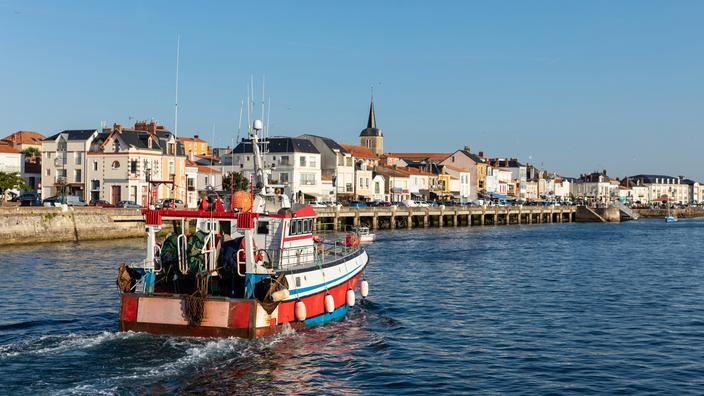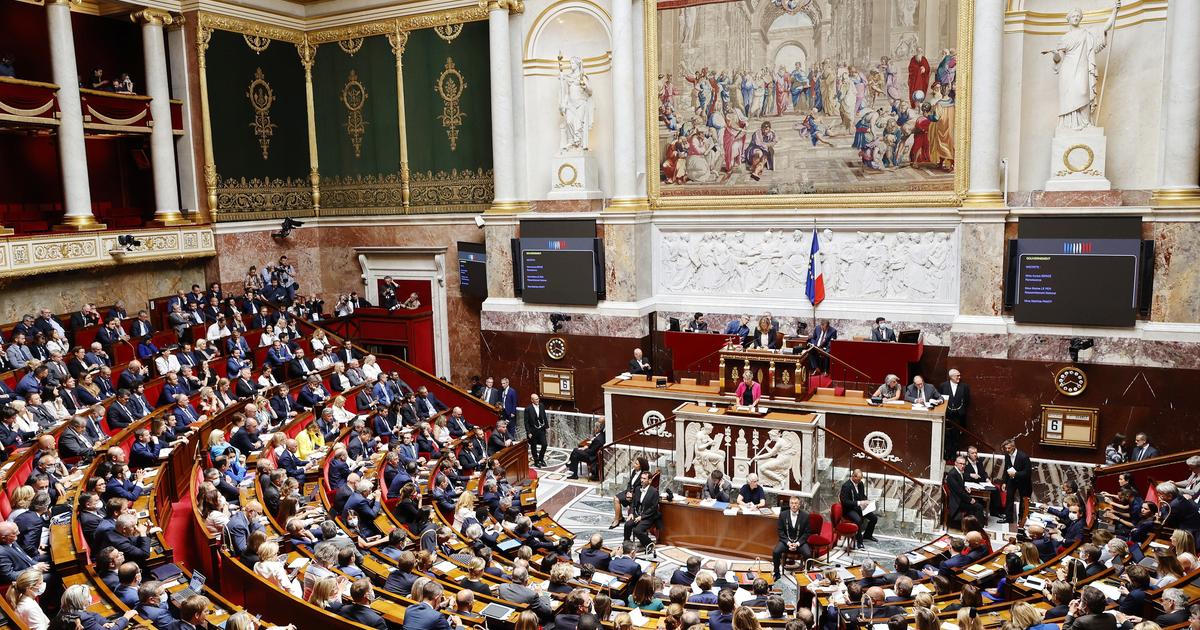Four months after the conclusion of the post-Brexit agreement, the situation became tense between London and Paris on the issue of French fishermen's access to fish-rich British waters.
Until this climax, Thursday morning, when more than 50 French fishing boats gathered in protest in front of the port of Saint-Hélier, the capital of the Anglo-Norman island of Jersey.
Read also: Post-Brexit fishing: French fishermen leave Jersey waters
The Brexit agreement negotiated at the end of December provides for a transition period until the summer of 2026, when European fishermen will give up 25% of the catches in British waters, the equivalent of 650 million dollars. euros per year.
It then provides for an annual renegotiation.
European Union fishermen will therefore maintain guaranteed access until summer 2026 to areas between 6 and 12 nautical miles off the British coast, where they traditionally went.
This area is known to have a lot of fish and is often quieter for sailing.
However, they must apply for new licenses.
The conditions of access of British fishermen to French waters have not changed, told AFP the director general of the national committee for marine fisheries and marine farming (CNPMEM), Jean-Luc Hall.
But that's only a handful of ships - caseyeurs (boats using pots) foraging for lobsters or crabs.
What gets stuck
The French government and fishermen say London is breaking free from the Brexit deal by tightening the conditions for fishermen to enter British waters.
To obtain their license, French vessels must therefore demonstrate to the British authorities that they were already fishing in this area over the reference period 2012-2016.
No problem, in principle, for large vessels equipped with "
Vessel Monitoring System
" (VMS), "
kinds of cookies that record the positions of vessels
", according to Jean-Luc Hall, of the National Fisheries Committee. But it is much more complicated for boats of less than 12 meters, for which this geolocation is not compulsory. Another pitfall: when a ship is recent, entered the fleet since 2016, it is necessary to prove that the boat it replaces was sailing in British waters, a "
Benedictine job
", describes Jean-Luc Hall.
According to the French Ministry of the Sea, France has so far received 88 licenses, out of 163 requested, for fishermen from Hauts-de-France, and 13 licenses out of 40 requested for their colleagues in North Brittany.
To fish in Jersey, 41 licenses were granted out of 344 requests made.
And according to Paris, these 41 licenses come with new “
inadmissible
”
requirements
.
Manche deputy Bertrand Sorre (LREM) cited the example of a fisherman from Granville authorized to go to Jersey waters for eleven days in 2021, and only to fish for scallops, while he used to go there "
on average 40 days a year
" to also collect whelks.
Vital access for EU fishermen
A quarter of French catches in volume (around 20% in value) come from British waters.
Dependence is even stronger for Belgium (50% of its catch in value), Ireland (35%), Denmark (30%) and the Netherlands (28%), according to 2011-2015 figures.
Spain, Germany and Sweden are also affected to a lesser extent.
The fish eggs settle along the French coasts and as far as Denmark, nourishing areas because they are fairly shallow and sandy.
"
When they become adults, they leave for the slightly deeper, colder and more oxygenated waters of the north
", according to the French Research Institute for the Exploitation of the Sea (Ifremer).
In British waters, then.
To read also: Guénolé Merveilleux: "France has abandoned its fishing for too long"
In a statement on Tuesday, the Jersey government assured it had "
granted fishing licenses in accordance with the trade agreement
" concluded between Brussels and London at the end of December.
The situation is all the more complex as Brussels and London have still not managed to agree on the adoption of fishing quotas for stocks shared between the EU and the United Kingdom for 2021.
"
There is probably on the British side the wish to keep on hand some means of pressure
", within the framework of the negotiations of these quotas, declared to AFP Jean-Luc Hall, director general of the national fisheries committee, for explaining licensing in a trickle manner.







/cloudfront-eu-central-1.images.arcpublishing.com/prisa/PWWJZJX4RNHDPFBDM57S7RFHGQ.jpg)







